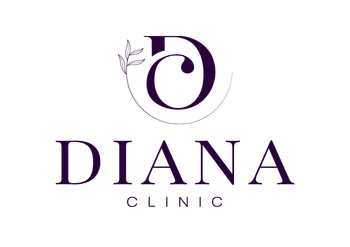
Acne is a common skin concern affecting people of all ages. While topical treatments remain the primary method for managing acne, oral supplements have gained attention as valuable adjuvant therapies. These supplements work alongside other treatments to target underlying factors that contribute to acne. In this article, we explore how key nutrients—Zinc, Niacinamide, Selenium, Vitamin A, Vitamin E, and Vitamin D3—can help improve acne and which types of acne benefit most from these supplements.
How Oral Supplements Help with Acne
Acne can be caused by factors like excess oil production, inflammation, clogged pores, and bacterial activity. Oral supplements help address these internal issues by supporting the skin’s health from within. When combined with topical treatments, supplements can enhance the overall effectiveness of acne treatment.
Which Types of Acne Benefit Most?
Oral supplements are particularly beneficial for inflammatory acne, such as papules, pustules, and nodules. These types of acne are typically associated with excess oil, bacteria, and inflammation, all of which can be targeted by the ingredients in these supplements. Non-inflammatory acne, like blackheads and whiteheads, can also benefit, but the results may be more pronounced in cases where inflammation plays a significant role.
Key Ingredients in Acne Treatment Supplements
Zinc
Zinc plays a crucial role in reducing inflammation and regulating the skin’s oil production. It also has antibacterial properties, making it helpful in controlling the bacteria (P. acnes) that contribute to acne. Zinc supplementation is often recommended for people with mild to moderate inflammatory acne due to its ability to calm the skin and reduce breakouts.Niacinamide
Also known as Vitamin B3, niacinamide has anti-inflammatory properties and helps regulate oil production. When taken orally, it can reduce the severity of acne lesions, particularly in individuals with inflammatory types of acne like papulopustular acne. Additionally, niacinamide supports skin barrier function, which helps reduce irritation and redness.Selenium
Selenium is an antioxidant that works closely with Vitamin E to protect the skin from oxidative stress, which can worsen inflammation. By reducing this stress, selenium helps support overall skin health and can play a role in managing inflammatory acne. It also boosts the immune system, aiding the body in combating acne-causing bacteria.Vitamin A
Vitamin A is well known for its role in skin health. It regulates skin cell turnover, preventing clogged pores that lead to breakouts. Vitamin A also helps reduce the activity of sebaceous glands, which decreases oil production. Oral Vitamin A can be especially helpful for people with moderate to severe acne, helping to prevent the formation of new lesions.Vitamin E
Vitamin E is another powerful antioxidant that helps reduce inflammation and supports the healing process of the skin. It works together with selenium to prevent cell damage and can improve the skin’s ability to recover from acne. Vitamin E also reduces acne scars and promotes smoother skin texture.Vitamin D3
Vitamin D3 plays a key role in supporting the immune system and reducing inflammation. People with low levels of Vitamin D are more prone to acne. Supplementing with Vitamin D3 can help improve skin health and reduce the severity of acne by boosting the body’s ability to fight off acne-causing bacteria.
When used as adjuvant therapy, oral supplements can significantly improve the treatment of acne, particularly inflammatory acne. Combining Zinc, Niacinamide, Selenium, Vitamin A, Vitamin E, and Vitamin D3 provides a multi-layered approach that targets excess oil production, reduces inflammation, supports the immune system, and helps the skin heal more effectively.
Talk to your doctor to learn more about these oral supplements that focus on acne, especially for adult acne or hormonal acne, which can be tricky to handle. Don’t miss out due to ignorance—start early! Treating acne is relatively easier than dealing with the aftermath, like dark spots or depressed scars.
Contact us at Klinik Dr. Diana for more information. Our doctors are here to guide you on the best ways to manage your acne and prevent long-term damage to your skin.
